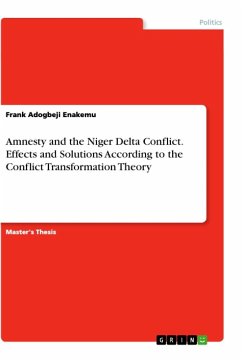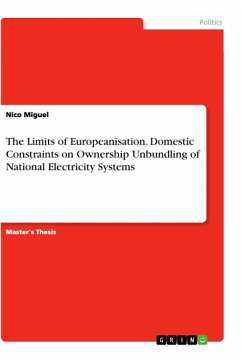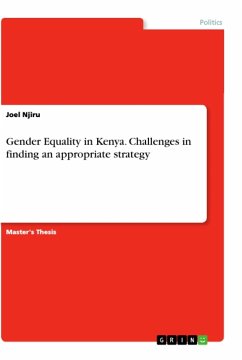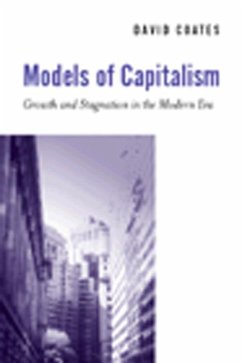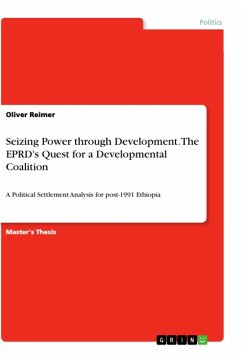
Seizing Power through Development. The EPRD's Quest for a Developmental Coalition
A Political Settlement Analysis for post-1991 Ethiopia

PAYBACK Punkte
0 °P sammeln!
Master's Thesis from the year 2020 in the subject Politics - International Politics - Region: Africa, grade: 1,2, University of Frankfurt (Main) (Institut für Politikwissenschaft), language: English, abstract: This thesis is conducting an in-depth analysis of the links between political power, institutional evolution and economic growth in Ethiopia since the fall of the Derg regime in 1991. A contemporary critique of the global political economy must not be caught in a liberal perspective on the origins of economic development. Liberal theorists, amongst others, have perceived rapid economic ...
Master's Thesis from the year 2020 in the subject Politics - International Politics - Region: Africa, grade: 1,2, University of Frankfurt (Main) (Institut für Politikwissenschaft), language: English, abstract: This thesis is conducting an in-depth analysis of the links between political power, institutional evolution and economic growth in Ethiopia since the fall of the Derg regime in 1991. A contemporary critique of the global political economy must not be caught in a liberal perspective on the origins of economic development. Liberal theorists, amongst others, have perceived rapid economic development to be contingent on the support by the legal-institutional structure which characterises capitalist societies in the Global North. The central pillars of this structure are legally protected private property rights, the rule of law and a state monopoly on violence. Liberal strands of development theory have attributed the failure of many societies in the Global South to catch up with Northern levels of welfare to the absence or insufficiency of these institutions. In the most recent decades this perspective has been promulgated most prominently by the New Institutional Economics (NIE). Its analysis, which found its way into policy under the catchword of good governance, claims that the takeoff of capitalism in the Global South is impeded by high levels of corruption, legal insecurity and the capture of state institutions by vested interests. Scholars who stand in the tradition of Marxism and Keynesianism have been disputing this causality for its supposed disregard of the socio-historical conditions which evoked the entrenchment of capitalist interests in societies of the Global North. Marx had highlighted that the transition to capitalism - and indeed all forms of economic growth, redistribute economic surplus unequally between different social forces. He therefore claimed that the entrenchment of capitalist modes of production was an outcome of social power struggles, in which the dominant group enforced its interests on less powerful groups. Institutions functioned to consolidate, materialise and perpetuate this relation of power. Abandoning the teleology of Marx, some post-Marxist scholars have adapted this perspective on institutions; they claim that institutions are an outcome of power struggles and thus reflect historical distributions of power rather than to be a means to transform the distribution of power in itself.




